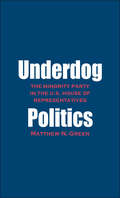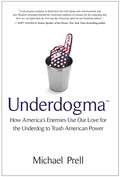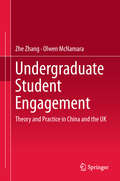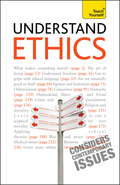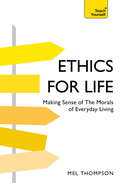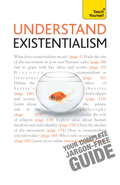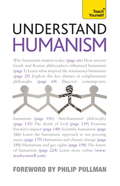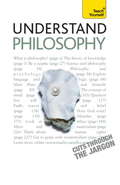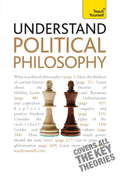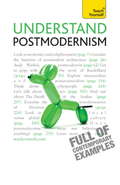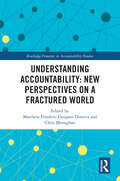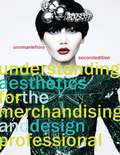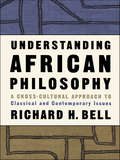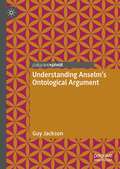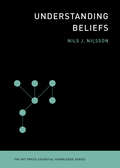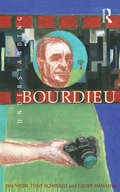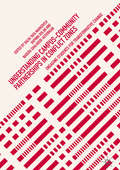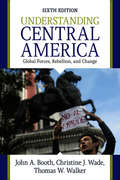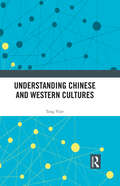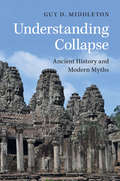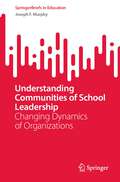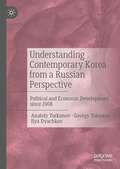- Table View
- List View
Underdog Politics
by Matthew N. GreenIn the first comprehensive study of the subject in decades, political scholar Matthew Green disputes the conventional belief that the minority party in the U.S. House of Representatives is an unimportant political player. Examining the record of the House minority party from 1970 to the present, and drawing from a wide range of quantitative and qualitative data, Green shows how and why the minority seeks to influence legislative and political outcomes and demonstrates that the party's efforts can succeed. The result is a fascinating appreciation of what the House minority can do and why it does it, providing readers with new insights into the workings of this famously contentious legislative chamber.
Underdogma: How America's Enemies Use Our Love for the Underdog to Trash American Power
by Michael Prell&“Analyzing and refuting the common assumptions of anti-Americanism is a critical contribution to the global political debate. Thank goodness for this effort." —UN Ambassador John Bolton, author of Surrender is Not an Option David versus Goliath, the American Revolutionaries, "The Little Engine That Could," Team USA's "Miracle on Ice," the Star Wars Rebel Alliance, Rocky Balboa, the Jamaican bobsled team and the meek inheriting the Earth. Everyone, it seems, loves an underdog. Why is that? We begin life tiny and helpless, at the mercy of those who are bigger and more powerful than us: parents and guardians who tell us what to eat, what to wear, how to behave (even when to sleep and wake up). From childhood into adulthood, we're told what to do by those who wield more power—our parents, teachers, bosses government. So naturally, we have a predisposition to resent the overdogs and root for the little guy. But this tendency, which international political consultant and human rights activist Michael Prell calls &“underdogma," can be very dangerous – both to America and to the world at large. In Underdogma, Prell, who has worked world leaders including Israeli Prime Minister Benjamin Netanyahu, the Australian and Canadian prime ministers and the Dalai Lama, explores our love/hate relationship with power within our culture and our politics. Underdogma explains seeming mysteries such as why: Almost half of Americans blamed President Bush for the attacks of 9/11, even while the American media described the architect of these attacks as &“thoughtful about his cause and craft" and &“folksy." Gays and lesbians protest those who protect gay rights (America, Israel), while championing those who outlaw and execute homosexuals (Palestine). Environmentalists focus their rage on America, even though China is the largest emitter of greenhouse gases. The United Nations elevates countries such as Sudan to full membership on the UN's Commission on Human Rights, even as the ethnic cleansing of Darfur proceeds. Tracing the evolution of this belief system through human history—ancient Greece to Marxism to the dawn of political correctness—Prell shows what continuing with this collective mindset means for our future. While America and its president increasingly exalt the meek and apologize for their power, America's competitors and enemies are moving in a different direction. China is projected to overtake the U.S. economically by 2027 and is ready to move into the position of hegemon, and radical Islamists are looking to extend their global territory, taking any sign of weakness as a chance to attack. America must return to its founding spirit, and underdogma must stop now—our nation depends on it.
Undergraduate Student Engagement: Theory and Practice in China and the UK
by Zhe Zhang Olwen McNamaraThis book focuses on undergraduate student engagement in China and the UK. It offers an innovative perspective on this aspect, which, although pervasive, is not always acknowledged by its users to be complex and multidimensional in nature, firmly rooted in cultural, social and disciplinary norms, and difficult to measure. Competition within the global higher education market has become increasingly intense amongst universities; and the higher education sector in China, currently the largest source of international students, is beginning to compete strongly for its home market. Against this consumerist background, student engagement, with its close relation to positive learning outcomes, is increasingly receiving attention from higher education managers and researchers who seek to improve the quality of their ‘products’.The research study on which the book is based draws on three courses, two in China and one in the UK. It offers a binary perspective across two very different cultures (Western and Confucian) and two very different subject areas (Chinese language and mathematics). The study employs a mixed-methods design and develops a conceptual framework derived from statistical and thematic analysis. An original theoretical lens, combining a bioecological perspective (Bronfenbrenner) and a sociocultural one (Holland et al.’s Figured Worlds), adds further interpretive power to help understand the construct of student engagement.
Understand Ethics: Making Sense of the Morals of Everyday Living
by Mel ThompsonWhether you're a student studying philosophy at any level, or simply want to gain a deeper understanding of this fascinating subject, Understand Ethics is an accessible introduction to all the key theories and thinkers. Fully updated, this latest edition includes contemporary examples and discussion of current debates including terrorism, genetics and the media, helping you to grasp how ethics applies to life today.NOT GOT MUCH TIME?One, five and ten-minute introductions to key principles to get you started.AUTHOR INSIGHTSLots of instant help with common problems and quick tips for success, based on the author's many years of experience.TEST YOURSELFTests in the book and online to keep track of your progress.EXTEND YOUR KNOWLEDGEExtra online articles at www.teachyourself.com to give you a richer understanding of psychology.FIVE THINGS TO REMEMBERQuick refreshers to help you remember the key facts.TRY THISInnovative exercises illustrate what you've learnt and how to use it.
Understand Ethics: Making Sense of the Morals of Everyday Living (Teach Yourself General Ser.)
by Mel ThompsonWe all face questions on an almost daily basis related to truth and post-truth, particularly in the political sphere, terrorism, globalization, immigration and asylum, social responsibility, media and social-media ethics, and gender and LGBT issues. So how do you navigate this minefield? Ethics for Life is an accessible introduction to all the key theories and thinkers. It shows the relevance of ethical ideas and theories to everyday life, emphasizing the way our view of ourselves and the societies we live in is shaped by our moral values and the arguments they are based on.With contemporary examples and discussion of current debates including terrorism, genetics and the media, Ethics for Life will help you grasp how ethics applies to life today.
Understand Existentialism: Teach Yourself (Teach Yourself Educational)
by Mel Thompson Nigel RodgersUnderstand Existentialism breaks down a complex mode of thought into more manageable sections, enabling you to get to grips with the key concepts within the movement. Chart the origins and development of existentialism in a variety of disciplines and learn about significant thinkers from Sartre and De Beauvoir to Beckett and Camus. Whether you are a newcomer or more experienced student, this book will enhance your understanding of a brand of philosophy designed to give meaning and direction amongst the uncertainties of modern life.NOT GOT MUCH TIME?One, five and ten-minute introductions to key principles to get you started.AUTHOR INSIGHTSLots of instant help with common problems and quick tips for success, based on the author's many years of experience.EXTEND YOUR KNOWLEDGEExtra online articles at www.teachyourself.com to give you a richer understanding.THINGS TO REMEMBERQuick refreshers to help you remember the key facts.TRY THISInnovative exercises illustrate what you've learnt and how to use it.and how to use it.
Understand Humanism: Teach Yourself (Teach Yourself General Ser.)
by Mark VernonUnderstand Humanism is the definitive introduction to this diverse and increasingly prominent philosophy. This guide teaches you everything you need to know about humanism, from it's ancient origins and key figures, to humanist answers to pressing modern issues, like climate change and identity politics.NOT GOT MUCH TIME?One, five and ten-minute introductions to key principles to get you started.AUTHOR INSIGHTSLots of instant help with common problems and quick tips for success, based on the author's many years of experience.TEST YOURSELFTests in the book and online to keep track of your progress.EXTEND YOUR KNOWLEDGEExtra online articles at www.teachyourself.com to give you a richer understanding of psychology.FIVE THINGS TO REMEMBERQuick refreshers to help you remember the key facts.TRY THISInnovative exercises illustrate what you've learnt and how to use it.
Understand Humanism: Teach Yourself (Teach Yourself General)
by Mark VernonUnderstand Humanism is the definitive introduction to this diverse and increasingly prominent philosophy. This guide teaches you everything you need to know about humanism, from it's ancient origins and key figures, to humanist answers to pressing modern issues, like climate change and identity politics.NOT GOT MUCH TIME?One, five and ten-minute introductions to key principles to get you started.AUTHOR INSIGHTSLots of instant help with common problems and quick tips for success, based on the author's many years of experience.TEST YOURSELFTests in the book and online to keep track of your progress.EXTEND YOUR KNOWLEDGEExtra online articles at www.teachyourself.com to give you a richer understanding of psychology.FIVE THINGS TO REMEMBERQuick refreshers to help you remember the key facts.TRY THISInnovative exercises illustrate what you've learnt and how to use it.
Understand Philosophy: Teach Yourself (Teach Yourself General Ser.)
by Mel ThompsonThis book is the essential introduction to the history of Western thought. Covering all the key thinkers, both ancient and modern, and all the major branches of philosophy, it will give you new insights about the world we live in. Packed full of examples and clear explanations, and with key terms defined and explained, it is ideal whether you are student looking for a quick refresher or just want to explore this fascinating topic out of personal interest.NOT GOT MUCH TIME?One, five and ten-minute introductions to key principles to get you started.AUTHOR INSIGHTSLots of instant help with common problems and quick tips for success, based on the author's many years of experience.TEST YOURSELFTests in the book and online to keep track of your progress.EXTEND YOUR KNOWLEDGEExtra online articles at www.teachyourself.com to give you a richer understanding of psychology.FIVE THINGS TO REMEMBERQuick refreshers to help you remember the key facts.TRY THISInnovative exercises illustrate what you've learnt and how to use it.
Understand Philosophy: Teach Yourself (Teach Yourself General)
by Mel ThompsonThis book is the essential introduction to the history of Western thought. Covering all the key thinkers, both ancient and modern, and all the major branches of philosophy, it will give you new insights about the world we live in. Packed full of examples and clear explanations, and with key terms defined and explained, it is ideal whether you are student looking for a quick refresher or just want to explore this fascinating topic out of personal interest. NOT GOT MUCH TIME? One, five and ten-minute introductions to key principles to get you started. AUTHOR INSIGHTS Lots of instant help with common problems and quick tips for success, based on the author's many years of experience. TEST YOURSELF Tests in the book and online to keep track of your progress. EXTEND YOUR KNOWLEDGE Extra online articles at www.teachyourself.com to give you a richer understanding of psychology. FIVE THINGS TO REMEMBER Quick refreshers to help you remember the key facts. TRY THIS Innovative exercises illustrate what you've learnt and how to use it.
Understand Political Philosophy: Teach Yourself (Teach Yourself General Ser.)
by Mel ThompsonUnderstand Political Philosophy is an in-depth guide to the philosophers and political ideas who have shaped our society. Quickly and easily get to grips with the key thinkers and theories, from Aristotle to Wollstonecraft, from capitalism to utilitarianism. With exploration of contemporary issues and current debates, this book will put political philosophy in the context of the world we live in today.NOT GOT MUCH TIME?One, five and ten-minute introductions to key principles to get you started.AUTHOR INSIGHTSLots of instant help with common problems and quick tips for success, based on the author's many years of experience.TEST YOURSELFTests in the book and online to keep track of your progress.EXTEND YOUR KNOWLEDGEExtra online articles at www.teachyourself.com to give you a richer understanding of psychology.FIVE THINGS TO REMEMBERQuick refreshers to help you remember the key facts.TRY THISInnovative exercises illustrate what you've learnt and how to use it.
Understand Political Philosophy: Teach Yourself (Teach Yourself General)
by Mel ThompsonUnderstand Political Philosophy is an in-depth guide to the philosophers and political ideas who have shaped our society. Quickly and easily get to grips with the key thinkers and theories, from Aristotle to Wollstonecraft, from capitalism to utilitarianism. With exploration of contemporary issues and current debates, this book will put political philosophy in the context of the world we live in today.NOT GOT MUCH TIME?One, five and ten-minute introductions to key principles to get you started.AUTHOR INSIGHTSLots of instant help with common problems and quick tips for success, based on the author's many years of experience.TEST YOURSELFTests in the book and online to keep track of your progress.EXTEND YOUR KNOWLEDGEExtra online articles at www.teachyourself.com to give you a richer understanding of psychology.FIVE THINGS TO REMEMBERQuick refreshers to help you remember the key facts.TRY THISInnovative exercises illustrate what you've learnt and how to use it.
Understand Postmodernism: Teach Yourself (TY Philosophy)
by Glenn WardUnderstand Postmodernism is an indispensable guide to this sometimes challenging domain. Using contemporary examples to further your understanding, it takes a broad look at theorists in a range of disciplines. Whether you're encountering postmodernism for the first time, or you need a quick reference to support your studies, this guide offers a comprehensive introduction to the key ideas in this thought-provoking philosophy. NOT GOT MUCH TIME? One, five and ten-minute introductions to key principles to get you started. AUTHOR INSIGHTS Lots of instant help with common problems and quick tips for success, based on the author's many years of experience. TEST YOURSELF Tests in the book and online to keep track of your progress. EXTEND YOUR KNOWLEDGE Extra online articles at www.teachyourself.com to give you a richer understanding of psychology. FIVE THINGS TO REMEMBER Quick refreshers to help you remember the key facts. TRY THIS Innovative exercises illustrate what you've learnt and how to use it.
Understanding Accountability: New Perspectives on a Fractured World (Routledge Frontiers in Accountability Studies)
by Matthew Flinders, Gergana Dimova and Chris MonaghanThis book brings clarity and understanding to the concept of accountability through the lens of conceptual political analysis. As the structure of the modern state has become more complex, the architecture of accountability has itself needed to evolve and re-orientate in an attempt to keep pace. This has led to an increased emphasis not on accountability per se but on different kinds or types of accountability. As such, it is argued here that accountability has emerged to become a concept with adjectives and there is a real need to properly understand accountability in an increasingly fractured world. The theoretical and analytical glue that binds all of the chapters in this collection is a commitment to working within the contours of the work of the philosopher, Giovanni Sartori. This is an approach that has been used to tease apart and interrogate a range of concepts including terrorism, governance, coups, gender equality, deliberation, warfare, clientelism, hybrid regimes, democracy, right through to art, love, rape and violence. It is also an approach that facilitates the cultivation of complex debates concerning the limits of conceptual flexibility. The volume consists of twelve chapters, grouped into three main parts. The introductory part provides the foundations for the collection. Part I on Power explores the normative dimensions of accountability as a means to control and regulate power. Part II on Politics focuses inter alia on accountability following a period of crisis and the emergence of new technology such as algorithms. The final part, Part III, on Particularities looks at concepts such as social accountability and what is meant by supplementary accountability. This broad-ranging collection increases the conceptual toolkit that social and political scientists and lawyers can use to interrogate change at a number of levels and in a range of sectors. Whether through a focus on moral, individual or gendered accountability, or through a shift towards clashing, stakeholder or social accountability, there is a clear flow and coherence through the chapters. The volume will be of interest to academics and researchers working in the areas of Legal and Political Theory, Legal and Political Philosophy and Accountability Studies.
Understanding Aesthetics for the Merchandising and Design Professional
by Ann FioreBridging the gap between the study of aesthetics and its application in the merchandising and design environments, the 2nd Edition of Understanding Aesthetics presents a research-based focus on the concepts of aesthetics and their effect on product value and consumer behavior. The multisensory approach to studying the elements and principles of design helps students master the underlying factors of successful design and learn how products and their promotional surroundings can establish brand identity and create a pleasing environment for the consumer.
Understanding African Philosophy: A Cross-cultural Approach to Classical and Contemporary Issues (Philosophy and the Human Situation)
by Richard H. BellFirst published in 2002. Routledge is an imprint of Taylor & Francis, an informa company.
Understanding Anselm's Ontological Argument
by Guy JacksonAnselm's ontological argument is one of the most fascinating, most controversial, and most misunderstood arguments in the entire history of Western thought. By centring the argument firmly in the Neoplatonic tradition within which Anselm was writing, Understanding Anselm's Ontological Argument sheds fresh light and clarity on this enigmatic piece of philosophy. It argues that, far from resting upon a fallacy or illegitimately attempting to define God into existence, Anselm's argument is a powerful and plausible philosophical proof, and deserves to be taken seriously as such. Written to be understandable for specialists and non-specialists alike, Understanding Anselm's Ontological Argument is ideal for scholars and researchers in philosophy of religionand philosophy in the Middle Ages (especially Neoplatonism) as well as for medievalists in general.
Understanding Beliefs (The MIT Press Essential Knowledge Series)
by Nils J. NilssonWhat beliefs are, what they do for us, how we come to hold them, and how to evaluate them. Our beliefs constitute a large part of our knowledge of the world. We have beliefs about objects, about culture, about the past, and about the future. We have beliefs about other people, and we believe that they have beliefs as well. We use beliefs to predict, to explain, to create, to console, to entertain. Some of our beliefs we call theories, and we are extraordinarily creative at constructing them. Theories of quantum mechanics, evolution, and relativity are examples. But so are theories about astrology, alien abduction, guardian angels, and reincarnation. All are products (with varying degrees of credibility) of fertile minds trying to find explanations for observed phenomena. In this book, Nils Nilsson examines beliefs: what they do for us, how we come to hold them, and how to evaluate them. We should evaluate our beliefs carefully, Nilsson points out, because they influence so many of our actions and decisions.Some of our beliefs are more strongly held than others, but all should be considered tentative and changeable. Nilsson shows that beliefs can be quantified by probability, and he describes networks of beliefs in which the probabilities of some beliefs affect the probabilities of others. He argues that we can evaluate our beliefs by adapting some of the practices of the scientific method and by consulting expert opinion. And he warns us about “belief traps”—holding onto beliefs that wouldn't survive critical evaluation. The best way to escape belief traps, he writes, is to expose our beliefs to the reasoned criticism of others.
Understanding Bourdieu
by Tony Schirato Jen Webb Geoff DanaherBourdieu's work is formidable-the journey is tough. Follow this French foreign legion-take an apple, take a hanky-but take this book.Peter Beilharz , Professor of Sociology , La Trobe UniversityPierre Bourdieu's work on the sociology of culture and language, on practical reason, on education, on citizenship and the cultures of poverty, and on a range of other topics is now coming to be seen as one of the 20th century's most important contributions to our thinking about the world. Understanding Bourdieu is a comprehensive and lucid introduction to his work. Measured and judicious, it's the best road map of this significant body of work currently available.John Frow, Regius Professor of Rhetoric and English Literature, University of EdinburghYou name it, Pierre Bourdieu has written about it. Now considered one of the most influential thinkers of the 20th century, he has left his mark on most of the 'big' theoretical issues in the world of contemporary theory: gender, subjectivity, the body, culture, citizenship, and globalisation. His terms are now commonplace: 'social capital', 'cultural capital', 'field', and 'habitus'.Bourdieu examines how people conduct their lives in relation to one another and to major social institutions. He argues that culture and education aren't simply minor influences, but as important as economics in determining differences between groups of people. Unlike the other grand systematisers Marx and Foucault, Bourdieu has tested these arguments in detailed fieldwork. His range is eclectic, his vision is vast, and his writing is often dense and challenging.Understanding Bourdieu offers a comprehensive introduction to Bourdieu's work. It is essential reading for anyone tackling him for the first time.
Understanding Campus-Community Partnerships in Conflict Zones: Engaging Students for Transformative Change
by Nadera Shalhoub-Kevorkian Dalya Yafa Markovich Daphna GolanThis book explores the opportunities and limitations of campus-community partnerships in Israel. In a conflict-ridden society with a struggling civic culture, the chapters examine partnerships at ten academic institutions, focusing on the micro-processes through which these partnerships work from the perspectives of students, NGOs, and disadvantaged communities. The editors and contributors analyse the range of strategies and cultural repertoires used to construct, maintain, negotiate and resist the various partnerships. Evaluating the various challenges raised by campus-community partnerships exposes the institutional and epistemological divides between academia and the community, and thus offers valuable insights into the ways partnerships can contribute to transformative change in conflict zones. This book will be of interest and value to researchers and students of campus-community partnerships as well as the anthropology of inclusion-exclusion and civic culture.
Understanding Central America
by Christine J. Wade John A. Booth Thomas WalkerUnderstanding Central America explains how domestic, global, political, and economic forces have shaped rebellion and regime change in Costa Rica, Nicaragua, El Salvador, Guatemala, and Honduras throughout their histories, during the often-turbulent 1970s and since. The authors explain the origins and development of the region’s political conflicts, their resolution and ongoing political change. This sixth edition provides analysis of citizens’ attitudes and participation through 2012 and up-to-date information on political changes in each of the five countries, including the 2013 and 2014 elections. Recent developments include dramatic changes in party systems in Honduras, Costa Rica, and Nicaragua; the extremely narrow victory of the newly elected FMLN president in El Salvador; and Guatemala’s prosecution of human rights abusers. This book is an essential resource, as it provides a comprehensive introduction to the region and a model for how to convey its complexities in accessible language.
Understanding Chinese and Western Cultures
by Tang YijieThe title is a collection of essays centering on the topic of intercultural communication between Chinese and Western cultures by Tang Yijie, one of the most renowned philosophy scholars in China.Comprised of five parts, the author discusses how Chinese culture should modernize itself through borrowing from Western culture premised on a self-awareness of Chinese culture per se. The book begins by critiquing theories of the so-called clash of civilizations and new empires and argues for the coexistence of cultures and a global consciousness instead. Chapters in the second part revisit contemporary Chinese culture in transition and call for the cultural integration of China and the West, with China defined in both its ancient and modern guises. By providing reflections on the cultural trends of the 1980s and 1990s, the third part illustrates the inevitable growth of diversified cultural development while analyzing cases of cultural dialogue in history, philosophy and religion. The fourth part demonstrates the significance of culture diversity and interaction while the fifth provides thoughts and reflections on some real-life cultural issues.This title will appeal to all levels of readers interested in Chinese culture, cross-cultural studies and topics of cultural pluralism.
Understanding Collapse: Ancient History and Modern Myths
by Guy D. MiddletonUnderstanding Collapse explores the collapse of ancient civilisations, such as the Roman Empire, the Maya, and Easter Island. In this lively survey, Guy D. Middleton critically examines our ideas about collapse - how we explain it and how we have constructed potentially misleading myths around collapses - showing how and why collapse of societies was a much more complex phenomenon than is often admitted. Rather than positing a single explanatory model of collapse - economic, social, or environmental - Middleton gives full consideration to the overlooked resilience in communities of ancient peoples and the choices that they made. He offers a fresh interpretation of collapse that will be accessible to both students and scholars. The book is an engaging, introductory-level survey of collapse in the archaeology/history literature, which will be ideal for use in courses on the collapse of civilizations, sustainability, and climate change. It includes up-to-date case studies of famous and less well-known examples of collapses, and is illustrated with 25 black and white illustrations, 3 line drawings, 16 tables and 18 maps.
Understanding Communities of School Leadership: Changing Dynamics of Organizations (SpringerBriefs in Education)
by Joseph F. MurphyThis book examines the evolution of schooling from bureaucracy and hierarchy to post-industrial schools, and places teachers’ leadership on center stage at the same time. That is, it asks teachers to deepen leadership in their classrooms and with other teachers. The book carries education and schooling from formal control to a social influence process and addresses the deeply rooted difficulty of focusing too much energy on content. It reveals the strong power of internal and external context and helps educators implant the idea of the school not as a fixed, immutable home, but as a relatively deep social process. It shows how co-leadership comes alive in schools. Communities of schooling is one of the three most critical developments in education in the last 140 years. When it is linked with the two other fundamental reorientations in schooling - “dispersed ownership” and “constructivist work” - it becomes the most powerful force in education since the 1700s. This book shows how communities of schooling replace the earlier pillars of “learning as telling,” “hierarchy of control,” and “non-democratic influence.” The work also explains the meaning and understanding of school work as a social influence process where all school-based educators exert power, but at different levels. The idea of enhancing individual and collective capacity through interdependency, shared work, and collective responsibility is unpacked.
Understanding Contemporary Korea from a Russian Perspective: Political and Economic Development since 2008
by Anatoly Torkunov Georgy Toloraya Ilya DyachkovThis book presents a comprehensive overview of political and economic developments as well as security issues in the Korean Peninsula during 2008–2020 from a Russian perspective. The authors offer a rich analysis of domestic affairs in both Korean states and the international situation they act in. The book’s first section, Diverging Development Paths, analyzes the evolution of North and South Korea in the early twenty-first century. The next section, The Nuclear Challenge, assesses Seoul’s and Pyongyang’s foreign policy options within ever-changing domestic and international circumstances – under the looming nuclear shadow. The final section, Partnering with Russia, presents an unprecedented first-hand account of Seoul’s and Pyongyang’s dealings with Moscow. The book provides a unique account with expertise from Russia, one of the four states directly involved in Korean affairs, providing insights on domestic and diplomatic decision-making of the two Korean states and international efforts to resolve the nuclear issue.
